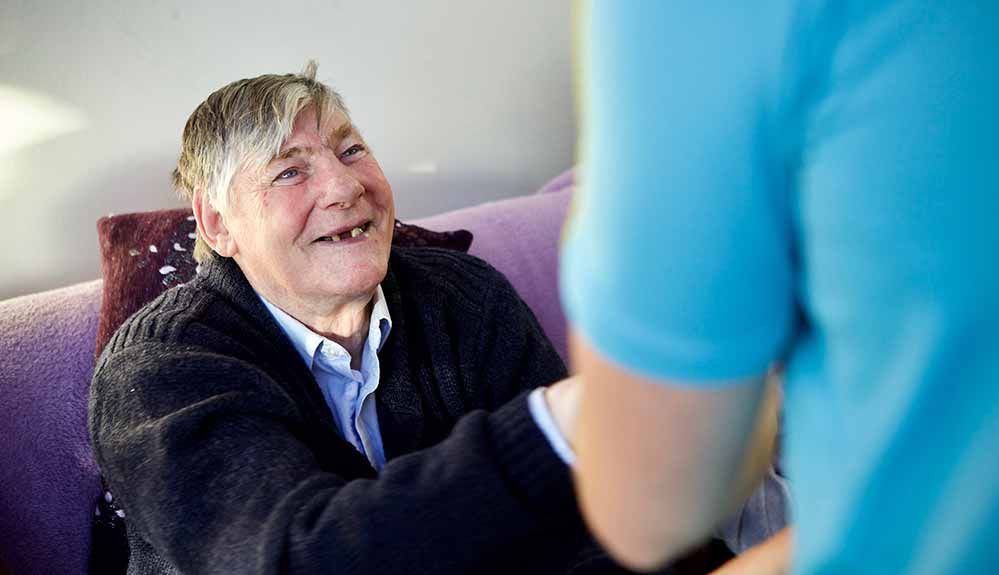This week, while being the week of St. Patrick’s Day, is also National Brain Awareness Week! So while we have plenty of reasons to be celebrating this week, we should also be thinking about ways to keep our brains healthy and active.
We all know the ways that exercise can help stimulate an average, healthy brain. The most well-known factor is the release of endorphins exercise causes in your brains, as well as a drop in hormones that can cause stress. Exercise in general also just gets your blood moving quicker, which causes more oxygen to be brought to the brain and helps stimulate the brain’s plasticity by forming more connections between different brain cells. Ultimately, just like how exercise is good for your body, its benefits find their way to your brain, too. Many people who exercise regularly report positive changes in their productivity, mood and overall wellbeing. However, these benefits also extend to people who are older adults, as well as those with a number of different health conditions.
While the benefits of exercise are well-known for people who are healthy and otherwise neurotypical, the mental benefits can sometimes be overlooked for those who have conditions and disorders associated with the brain. However, the benefits of exercise for people with conditions such as Parkinson’s disease, dementia and even having just survived a stroke are plentiful and should be acknowledged. For people with these conditions, sometimes it may seem like one of the last things they should be doing is physical exercise, but how exercise can help people in terms of maintaining physical functions, improving their physicality and even improving behaviour are actually well-documented.
Parkinson’s disease is a chronic condition that can lead to general weakness, low muscle power and fatigue. This is why it’s especially important for people with this condition to focus on maintaining their physicality, which can ultimately slow the negative effects of the disease. The exercises that help participants with Parkinson’s disease the most are usually those that focus on balance, strength-building, endurance and flexibility. This is because all these aspects of an individual’s physicality are what help them do typical, daily tasks, which are incredibly important for maintaining one’s independence.
As for dementia, the benefits of exercise for people with this condition are most frequently seen through the mental and emotional impact exercise has. In addition to maintaining motor skills and reducing the risk of falling, professionals have also reported that exercise helps people with dementia by improving their move, helping them fall asleep easier, improving their memory and improving all around behaviour. Dementia is a challenging condition to live with and, ultimately, exercise is able to aid people with not only maintaining their physical state, but their mental as well.
For people who have just survived a stroke, one of the risk factors that can cause strokes is physical inactivity, making exercise one of the best ways to prevent a recurrent stroke. Additionally, the benefits exercise can have on stroke survivors is just as much mental and emotional as it is physical. For stroke survivors, experts have reported that exercise has led to improved mental health and overall quality of life in survivors. The physical benefits are numerous, including lower blood pressure, pain alleviation, improved coordination, better balance, more endurance and more energy.
Ultimately, the benefits of exercise for people with Parkinson’s disease, dementia, or those who have just survived a stroke are numerous and worth noting. At Siel Bleu Ireland, we firmly believe in the benefits exercise has on all individuals, regardless of age or medical condition. Furthermore, we offer exercise programmes designed specifically for people with the conditions mentioned above — including our programme with the Parkinson’s Association of Ireland, Living Well with Dementia, our programme with the Irish Heart Foundation for stroke survivors, and others. If you believe you or anyone you know could benefit from one of our programmes, please do not hesitate to get in contact with us and find a class near you!
Sources:
https://parkinsonsdisease.net/treatment/exercise/
https://www.betterhealth.vic.gov.au/health/ConditionsAndTreatments/dementia-activities-and-exercise
***Disclaimer: The information in this post is for reference only and is not intended to be a substitute for medical expertise or advice. If you have any concerns about your own or another’s health, then please contact your doctor.


